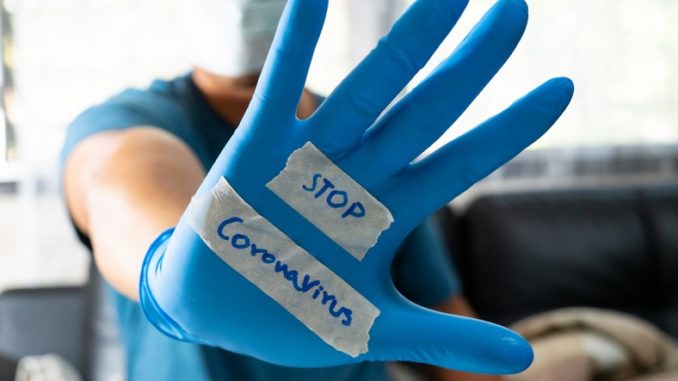
With doctors, nurses and beds in short supply, the health service will rely on its heroes more than ever
This is an edited version of an article first published by The Guardian and written by Polly Toynbee.
The patient is a 71-year-old, thin and frail after 10 years of chronic neglect, who is about to suffer a severe attack of the coronavirus. How will the weakened body of the NHS cope when the surge of cases sweeps down on it within weeks? Expect this to expose its worst fragilities – but also its remarkable strengths.
Take its pulse and it’s short of 100,000 doctors and nurses, with 17,000 beds lost since 2010. Germany has eight beds per 1,000 people , UK only 2.5. Italy has more than us but is treating intensive care patients in corridors. In the past three years 5,500 UK patients died waiting on trolleys, without the virus. Politicians love hospitals, wrongly hoping photo ops with doctors and nurses will see some of that trust rub off on them. Instead, the contrast rankles. Boris Johnson makes his cabinet sheepishly chant “40 new hospitals”, knowing those are nonsense numbers. It’s always hospitals they choose, not the everyday frontline work of GPs who do 90% of treatments for 7% of NHS funds. They wait to see if the budget will bring anything to ease them through the coming crisis.
Dr Krishna Kasaraneni, in Sheffield, had just received his surgery’s supply of personal protection equipment when I called. It’s only enough aprons, gloves and face masks for five days: “We don’t know if or when they’ll send more.” The Health Service Journal reports rationing as NHS Supply Chain is “managing demand” for hand sanitisers and personal protection equipment. GPs are most at risk, never knowing what ailments turn up within their surgeries. “Will I quarantine myself the minute I see a patient with the virus? No, we GPs always keep working until we drop.” If schools close: “We’re making the practice manager’s office into a creche, to keep working.”
When I first visited in 2015 he couldn’t fill doctor vacancies: the health secretary at the time, Jeremy Hunt, promised another 5,000 GPs, but failed. Last year numbers fell by another 1,084. As a member of NHS England’s GP committee, Kasaraneni sees what’s happening. Although numbers in training are rising, other GPs depart, retiring early, exhausted: fewer GPs means the rest are more overworked. Younger ones decamp to higher pay and less stress in Australia or California.
In the budget Kasaraneni would “keep them in the NHS by paying off their student loans”. He would fix the bizarre public pensions debacle that ejects older public servants who face crippling tax bills for working extra time. The good news is new support staff, with the NHS centrally paying for physiotherapists, pharmacists and social prescribers in GP practices.
His first action in this crisis? “Suspend CQC inspections and get all those medical staff on the frontline.”
Dr Martin Marshall, a GP in Newham, east London, and chair of the Royal College of General Practitioners, would remind the chancellor this week that GPs deliver most value: “Our costs are just £150 to treat a patient for a year: one visit to A&E costs the NHS £200.” When Marshall started out, he saw 22 patients a day: today it’s 50 or 60, plus maybe 100 calls and letters about patients from other services. Fear of making errors under that pressure deters new beginners. How will GPs respond to the virus threat? “We never take duvet days”.
The chancellor, Rishi Sunak, on the Andrew Marr programme, “absolutely categorically” swore: “I stand ready to give the NHS whatever it needs.”
Prof John Appleby, chief economist at the Nuffield Trust, asks: “A blank cheque, really? Does the Treasury ever?” He rehearses the financial tourniquet that has strangled the NHS: it’s had 1.5% a year, compared with an average 4% since 1948, in a decade when over-65s rose by 25%. “That’s a 10-year black hole to fill, with staff not there who should have been trained.” He points to target times missed for cancer, A&E – and 4.5 million on operation waiting lists.
Ask what they need in the budget and Dr Clare Gerada, in Lambeth, south London, points to the cupboard she uses as her consulting room, while the GP next door uses a converted disabled toilet.
“There has been no capital for GP surgeries.” As co-chair of the NHS Assembly, she has a wide overview of the NHS. Social care, she says, is least fit to cope with this virus. “They talk of field hospitals: we’ll need field care homes.” But returning from a US visit has reminded her how well the NHS will cope compared with the private US system, fragmented, with no free testing.
The epidemic will remind everyone how the NHS model saves the day, she says. “Only here can NHS England send out a message to 300,000 doctors and they obey.” That’s proved invaluable in dry runs for epidemics. It helps that the sheer quality of NHS leadership commands wide respect.
As for Prof Chris Whitty, previously little-known chief medical officer, he earns lavish praise – and that will be crucial. Staff may despair at the threadbare, depleted condition of the NHS, doubting the Treasury will pour in “whatever it needs”, yet against the odds they swear it will cope because under pressure that’s in its DNA, its nature and its spirit. If they sound like Henry V before Agincourt, well, he did win.
Don’t forget to follow us on Twitter, or connect with us on LinkedIn!

Be the first to comment